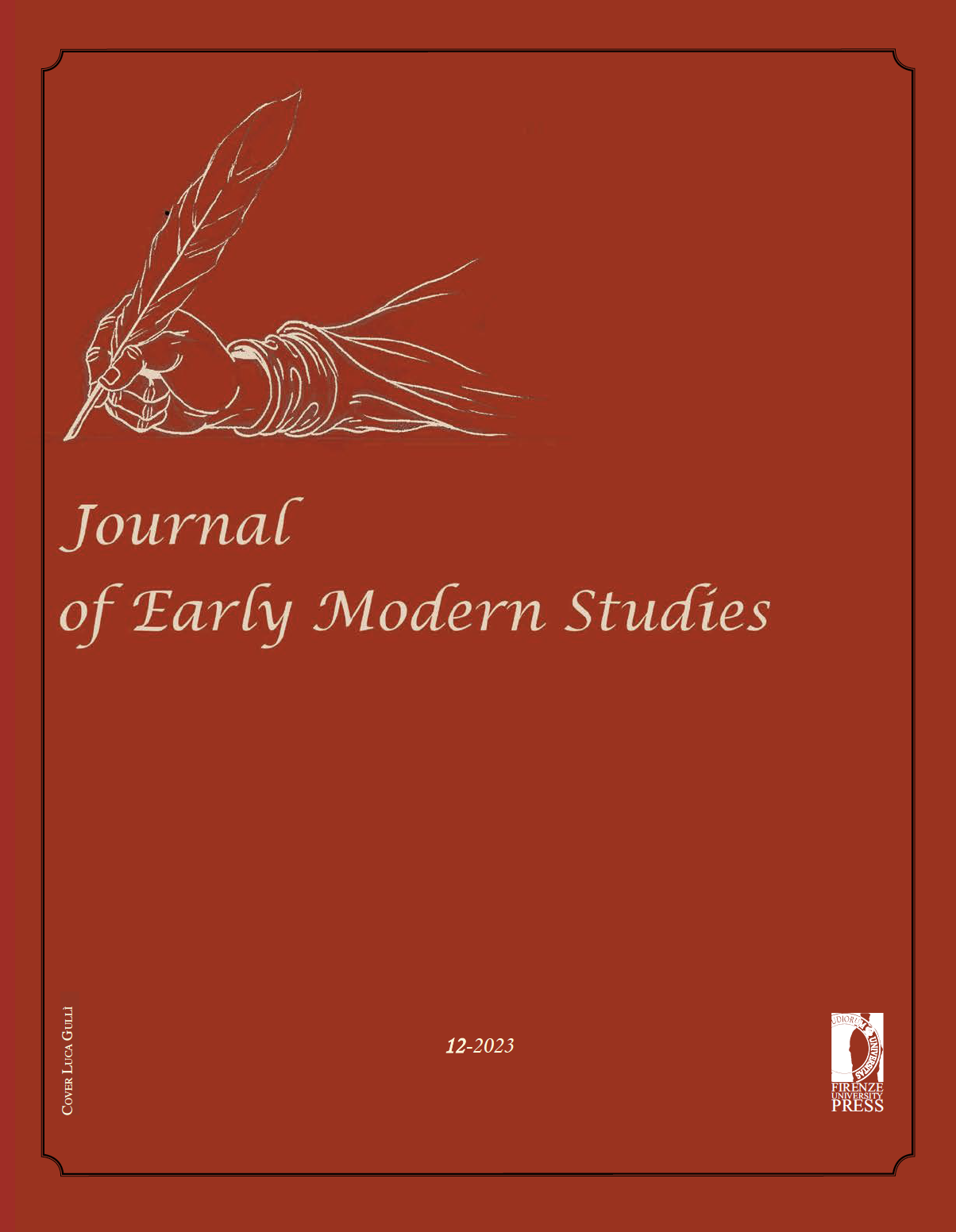Charting English Global Presence and its Violent Effects in Early Modernity: Reading Strategies for an Ambivalent Archive
Published 2023-03-19
Keywords
- Atlantic Slave Trade,
- Baptista Boazio,
- Early Modern Cartography,
- English Adventurism,
- Francis Drake
How to Cite
Copyright (c) 2023 Sandra Young

This work is licensed under a Creative Commons Attribution 4.0 International License.
Abstract
The maps tasked with charting English new-found seafaring prowess in the latter half of the sixteenth century constitute an ambivalent archive. They participated in the imaginative work of conceptualising the world as whole and singular, held within a unified cosmos. At the same time, they were distinctly partisan, helping to advance English adventurism and construct an elevated vantage point where, the would-be English colonialist, might imagine traversing oceans to subdue far-flung lands and their peoples. By reading and re-reading Baptista Boazio’s beautiful hand-painted map, ‘The Famouse Weste Indian Voyadge’, a visual account of the voyage Francis Drake undertook in 1585 endorsed by Elizabeth I to make the case for English primacy in the Americas, the essay reflects on the interpretative tool kit that might be helpful in laying bare the racial violence that infused the early period of English expansionism. Reading, as presented here, becomes a matter of excavation. Maps such as Boazio’s were tasked with cosmographical import: they participated in the world-making that established a singular world, imagined as a totality, I argue, while simultaneously advancing rival national interests and the forms of dominance that underpinned racial slavery. The interrelated texts that chart the emergence of English aggression on the high seas offer an opportunity, albeit obliquely, to reckon with the history of English enslavement and to consider the ways that early modern knowledge practices are implicated in this history.

